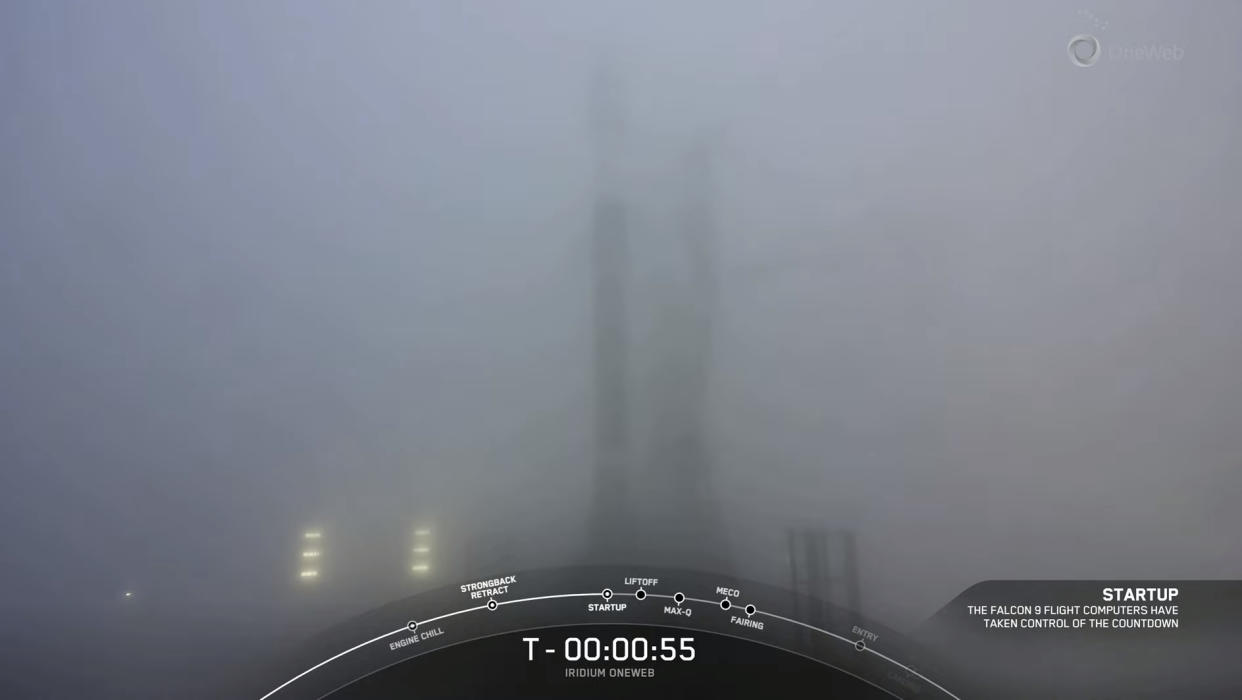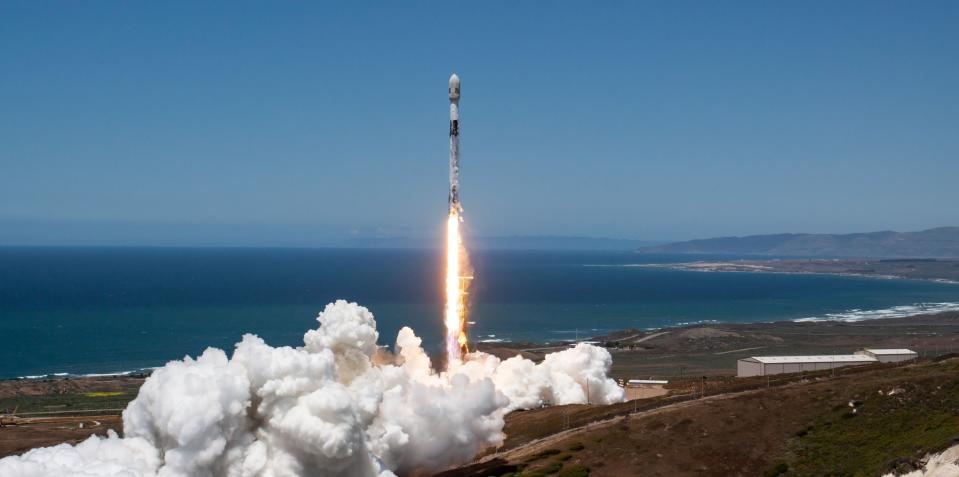SpaceX aborts Falcon 9 rocket launch for OneWeb, Iridium. Will try again May 20.

Update for 9:57 am ET: SpaceX aborted the launch of a Falcon 9 rocket carrying satellites for OneWeb and Iridium early Friday just under a minute before liftoff. The abort occurred 55 seconds before the planned launch.
"Standing down from today's launch of the Iridium OneWeb mission," SpaceX wrote in an update on Twitter.
The next launch attempt is set for Saturday, May 20, at 9:16 a.m. EDT (1316 GMT).
SpaceX plans to launch its second mission in a span of seven hours on Friday morning (May 19), and you can watch the action live.
A Falcon 9 rocket topped with 21 satellites for the companies Iridium and OneWeb is scheduled to lift off from Vandenberg Space Force Base in California on Friday at 9:19 a.m. EDT (1319 GMT; 6:19 a.m. local California time).
Watch it live here at Space.com, courtesy of SpaceX, or directly via the company. Coverage is expected to begin about 15 minutes before launch.
Related: 8 ways that SpaceX has transformed spaceflight

If all goes according to plan, the Falcon 9's first stage will return to Earth about nine minutes after liftoff. It will touch down on the SpaceX droneship Of Course I Still Love You, which will be stationed in the Pacific Ocean.
It will be the 11th launch and landing for this particular booster, SpaceX said in a mission description.
The rocket's upper stage, meanwhile, will continue carrying the satellites — five belonging to Iridium and the other 16 to OneWeb — to low Earth orbit. They're scheduled to be deployed over the course of about 30 minutes, beginning roughly an hour after liftoff.
Fifteen of the OneWeb satellites will further build out the company's broadband constellation in low Earth orbit. The 16th is a technology demonstrator known as JoeySat.
"JoeySat contains several new technologies, including a digitally regenerative payload and demonstration of multi-beam electronically steered phased array antennas," OneWeb wrote in a mission description.
SpaceX has already launched three batches of OneWeb internet satellites, sending 40 spacecraft skyward on each of those previous missions.
RELATED STORIES:
— Falcon 9: SpaceX's workhorse rocket
— SpaceX launches 1st batch of new 'V2 mini' Starlink satellites to orbit
— 10 weird things about SpaceX's Starlink internet satellites
The five Iridium satellites are spares that will provide further backup for the company's 66 currently operational telecom satellites. (Iridium already has nine spare satellites in orbit.)
"Our constellation is incredibly healthy; however, the spare satellites have no utility to us on the ground," Iridium CEO Matt Desch said in a statement in September 2022, when this SpaceX launch was announced.
"We built extra satellites as an insurance policy, and with SpaceX's stellar track record, we look forward to another successful launch, which will position us even better to replicate the longevity of our first constellation," he added.
This launch will be the second in rapid succession for SpaceX. The company also launched 22 of its own Starlink "V2 mini" internet satellites from Florida's Space Coast on Friday at 2:19 a.m. EDT (0619 GMT).
Mike Wall is the author of "Out There" (Grand Central Publishing, 2018; illustrated by Karl Tate), a book about the search for alien life. Follow him on Twitter @michaeldwall. Follow us @Spacedotcom, or on Facebook and Instagram.

